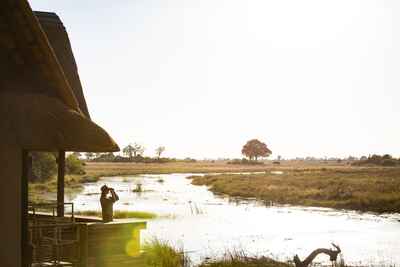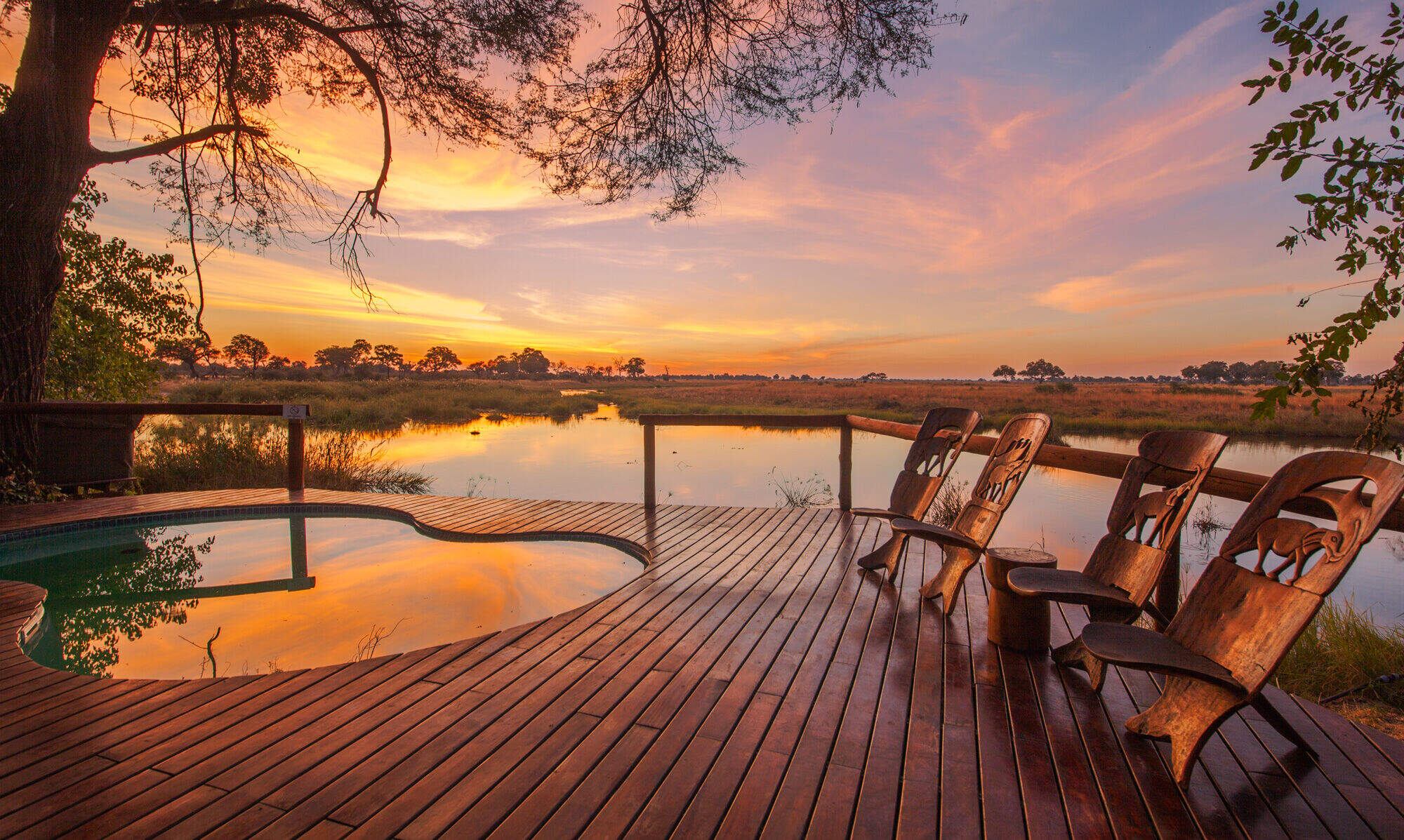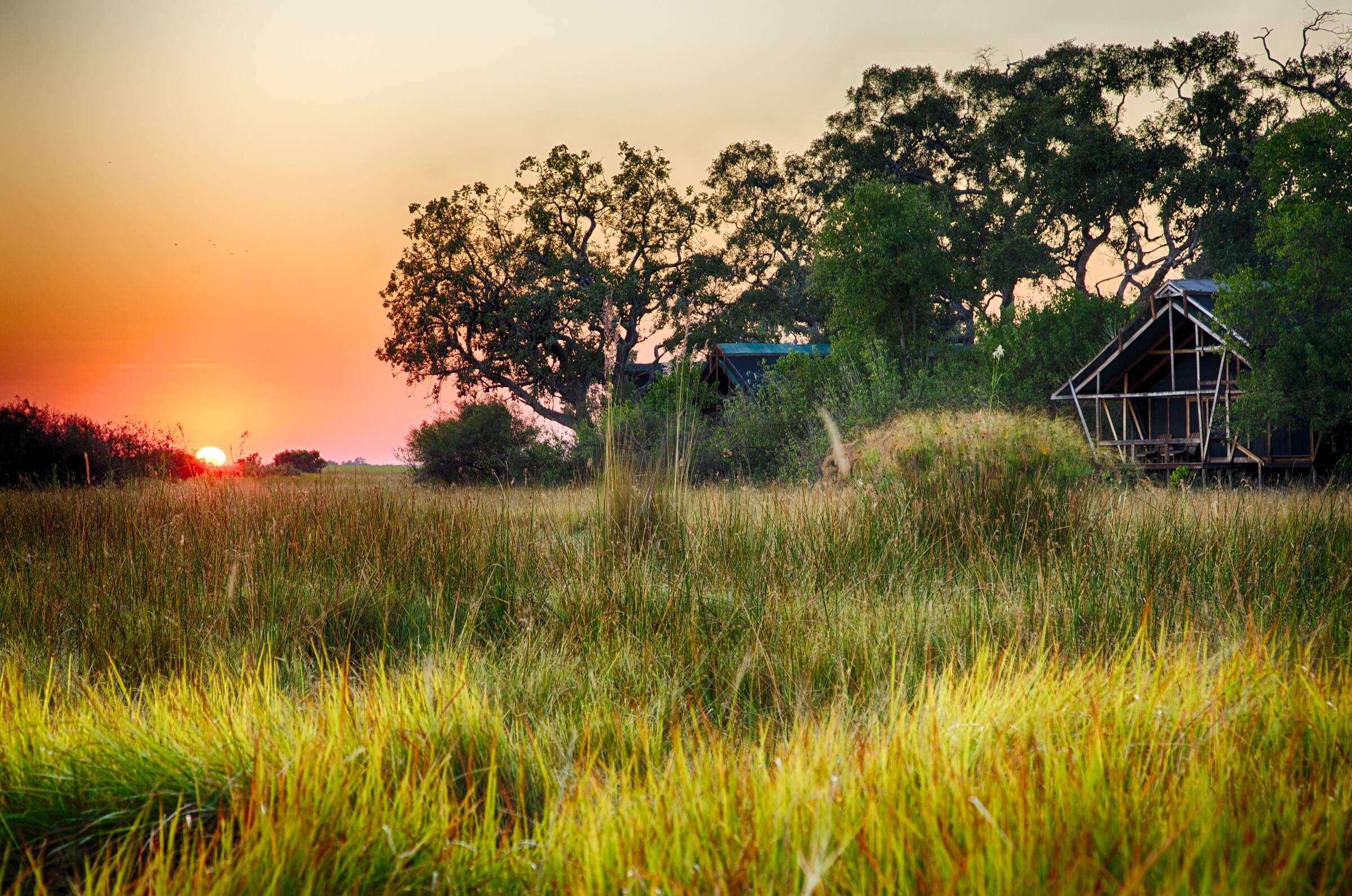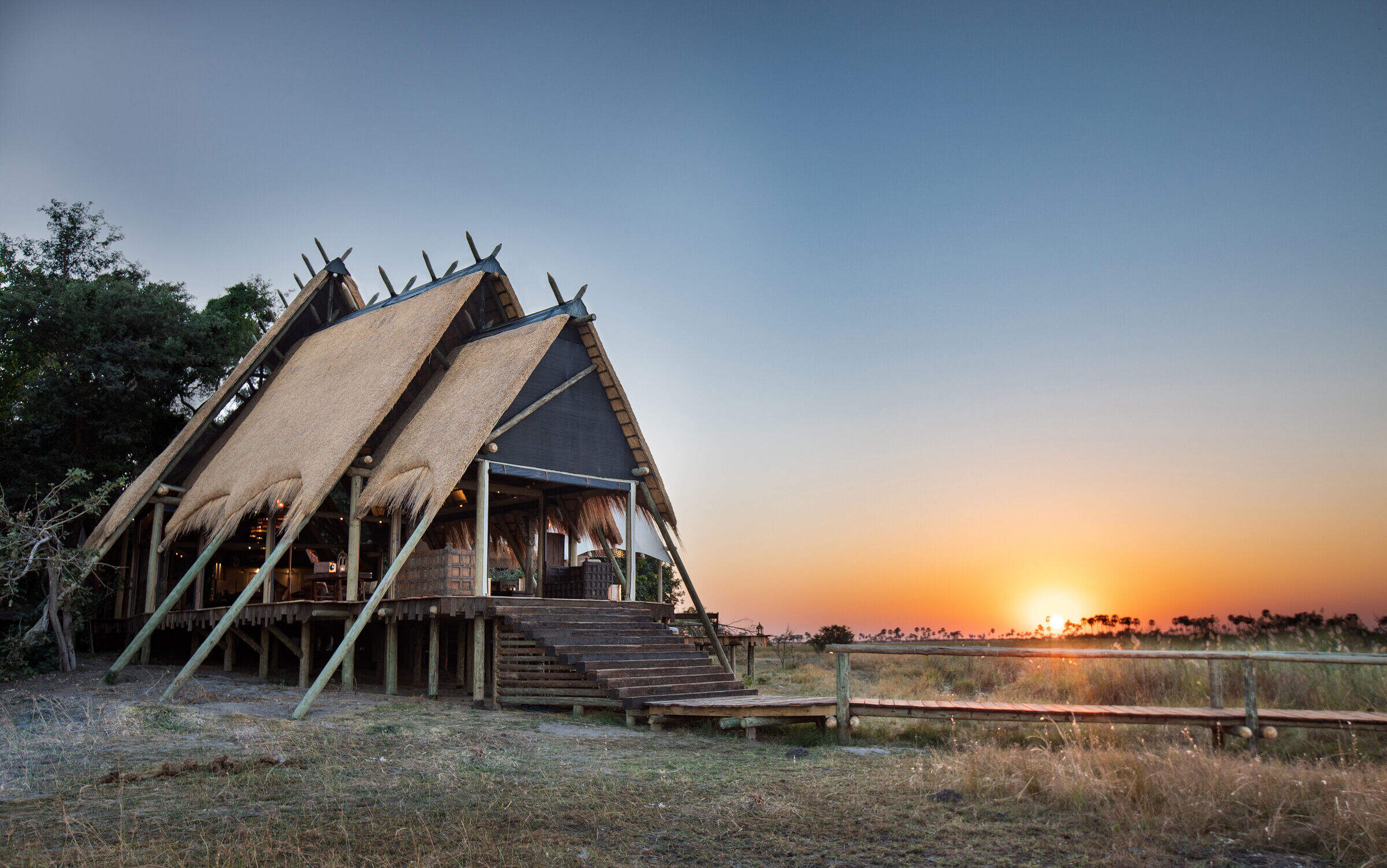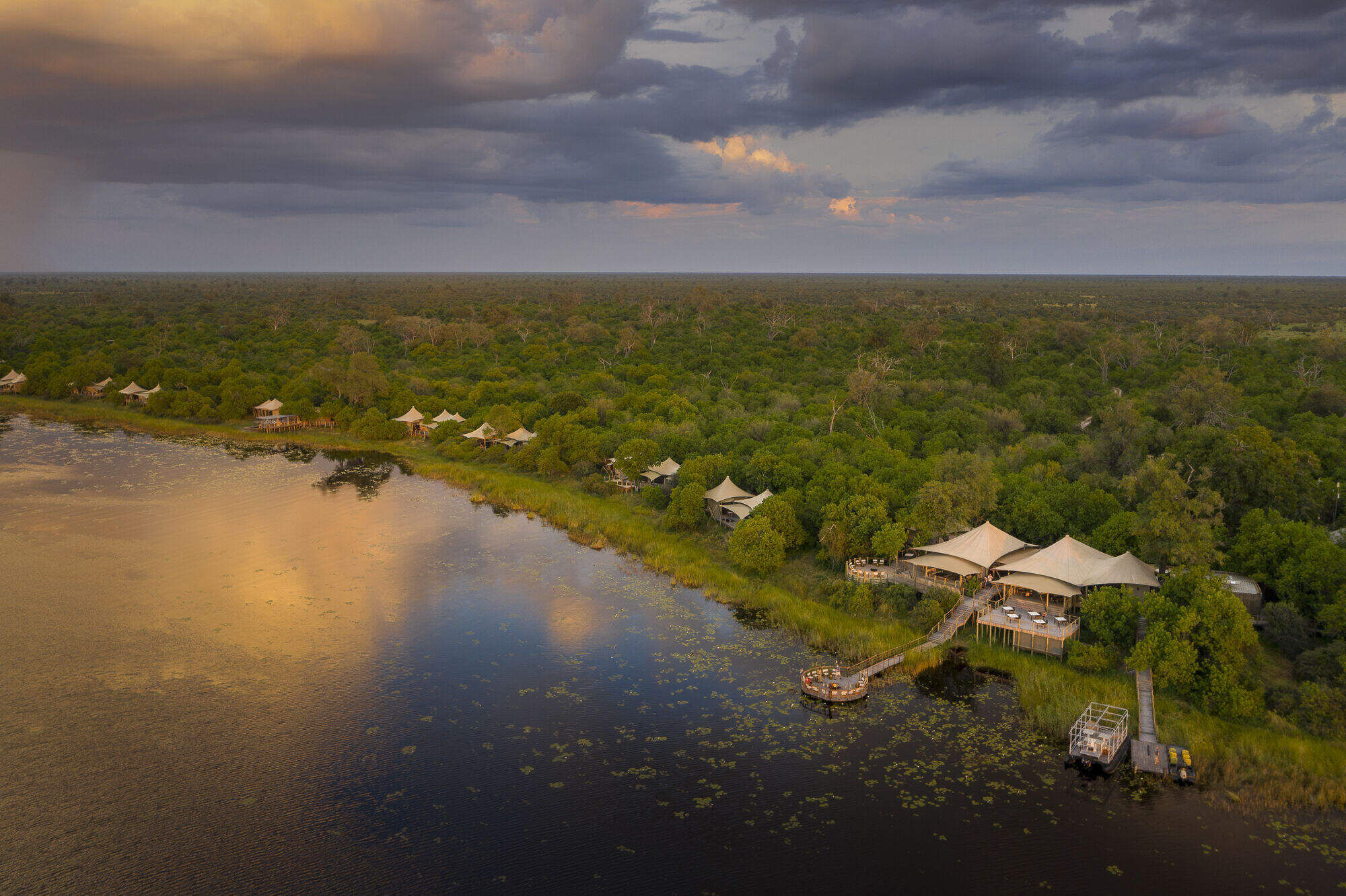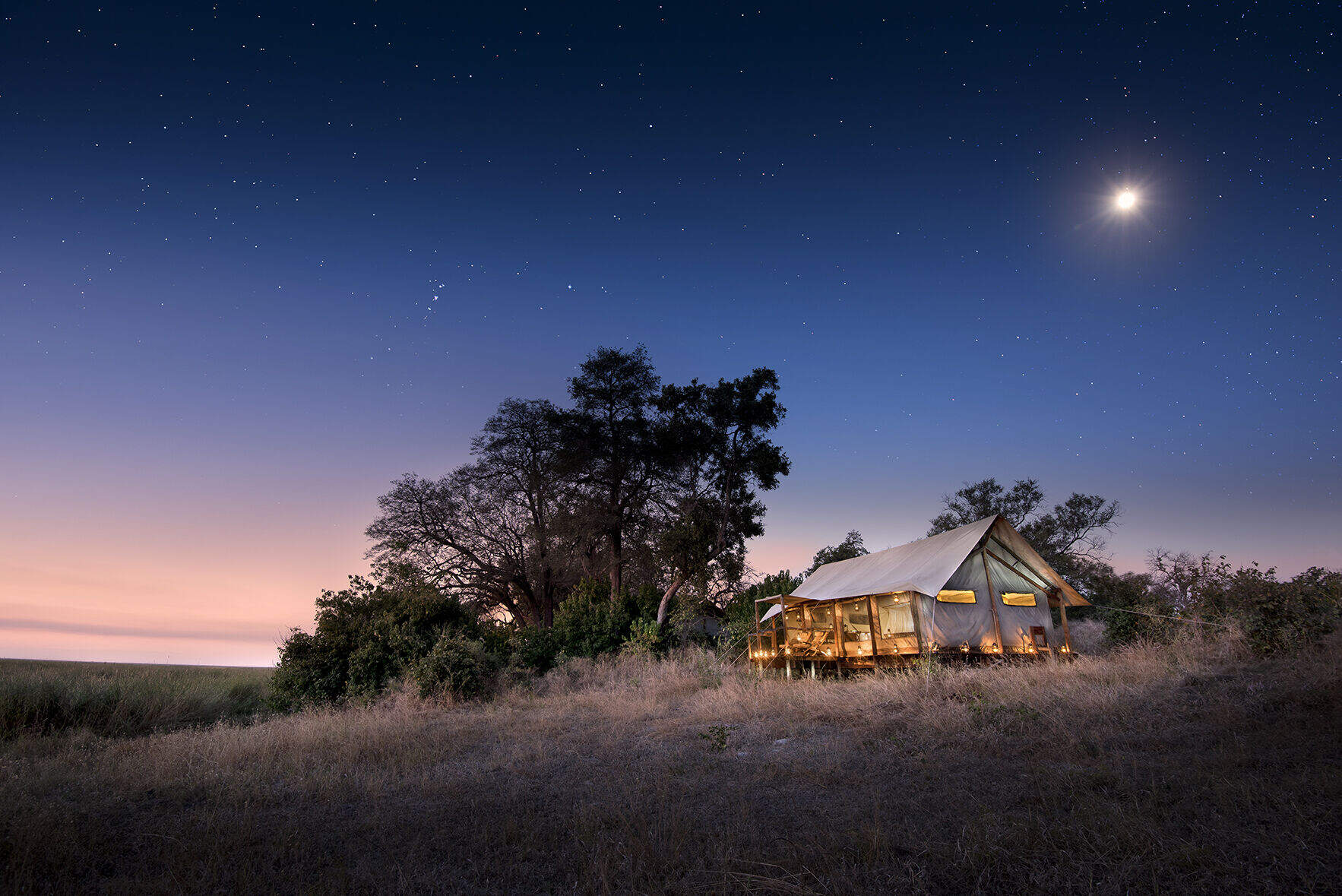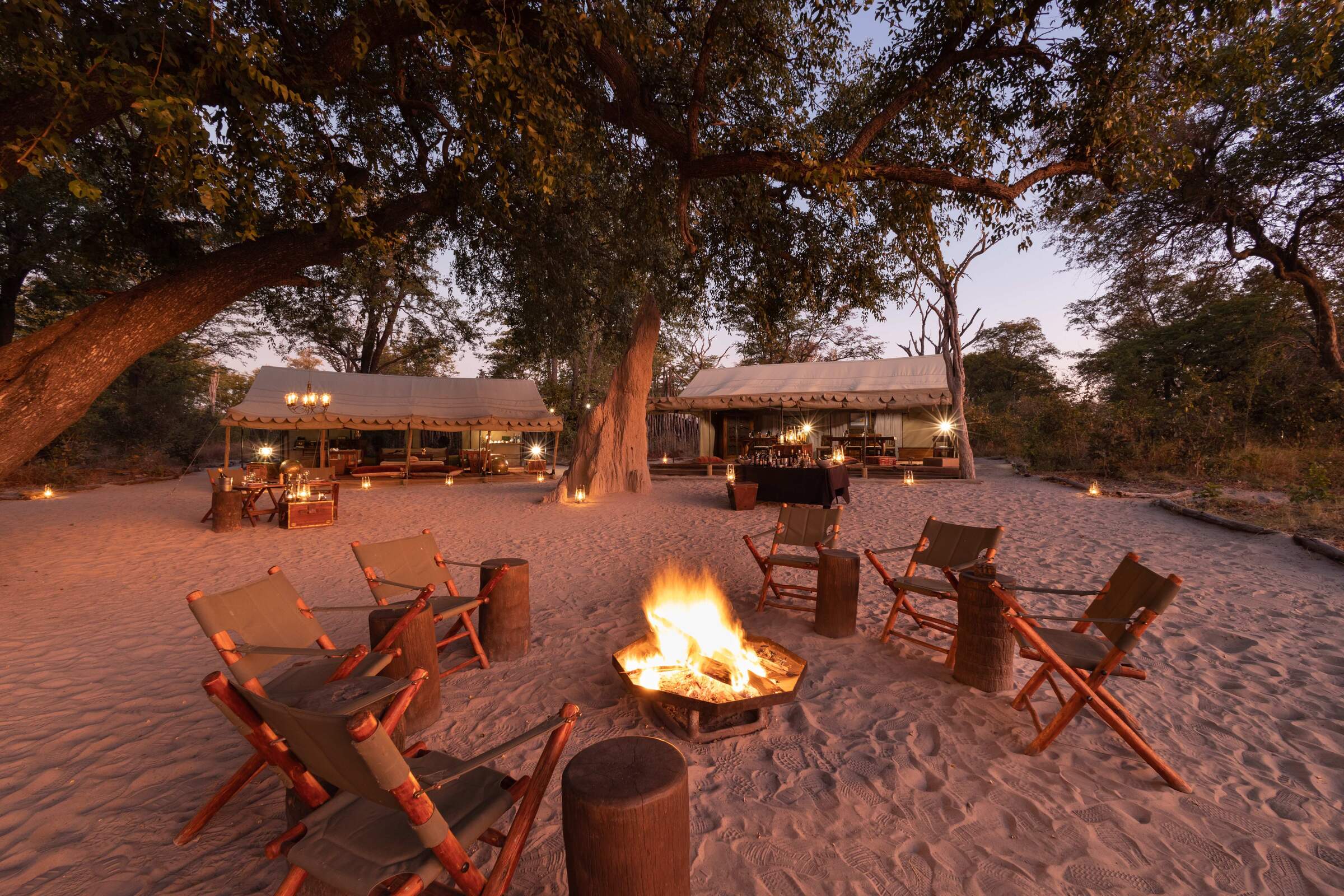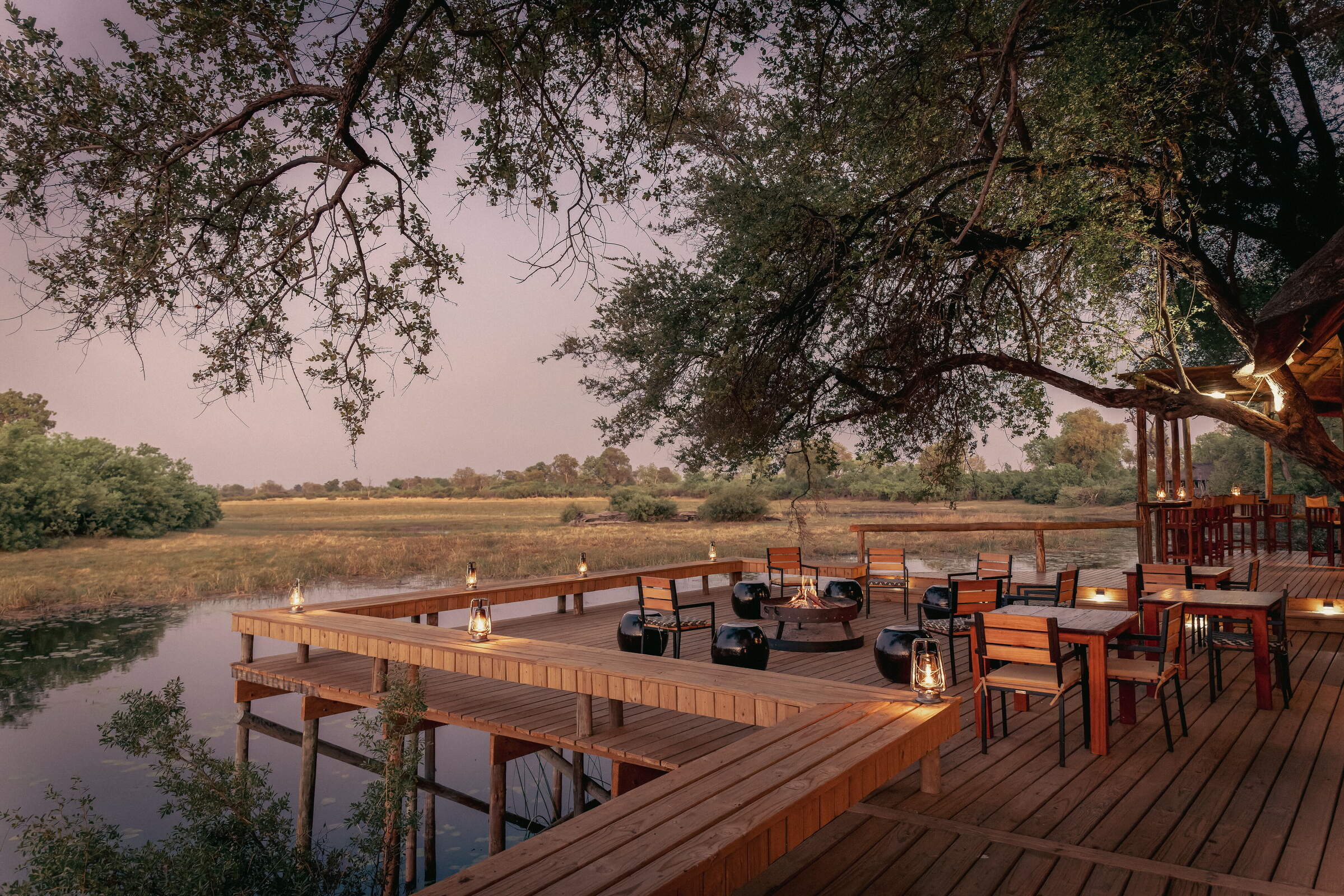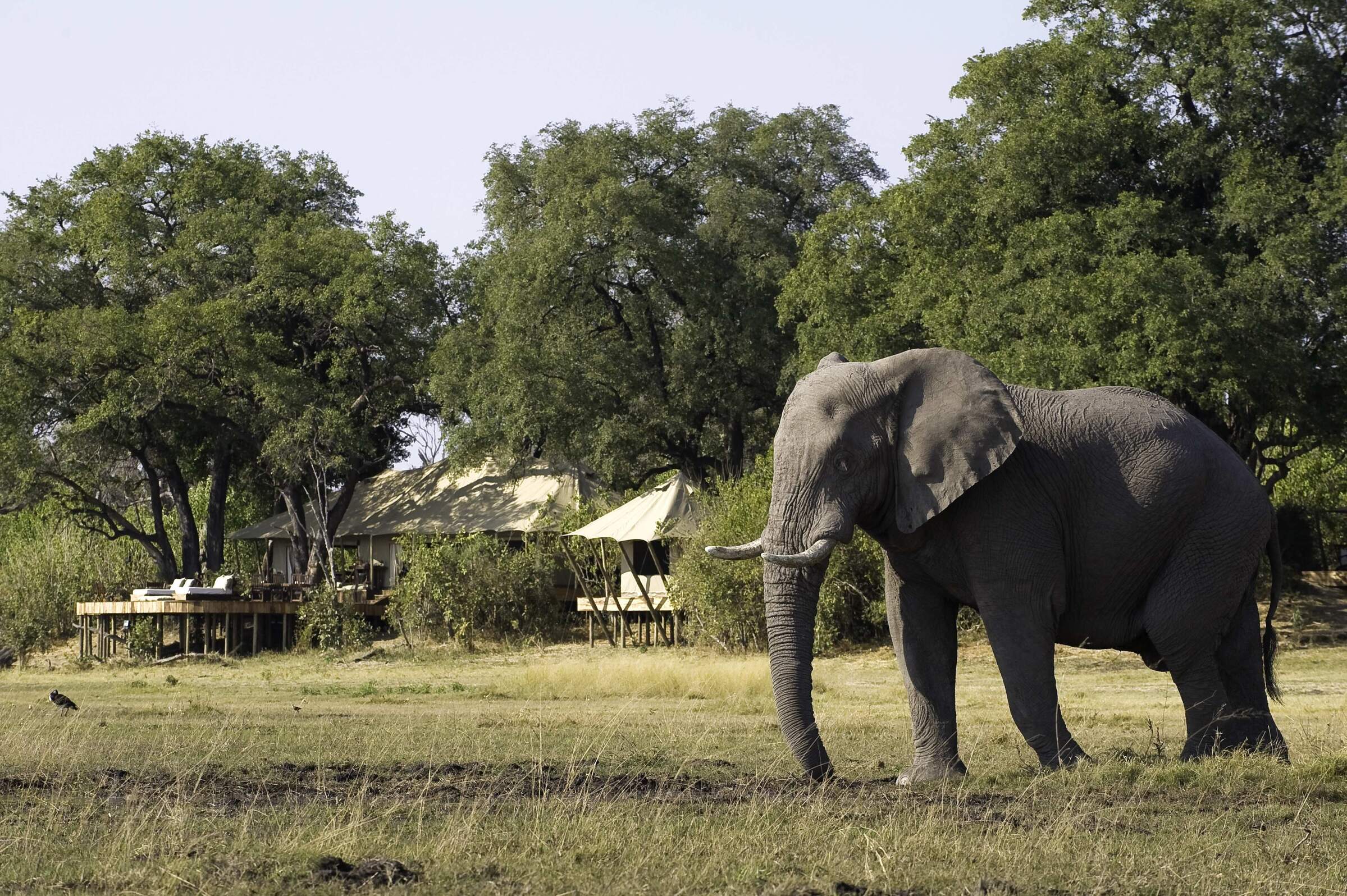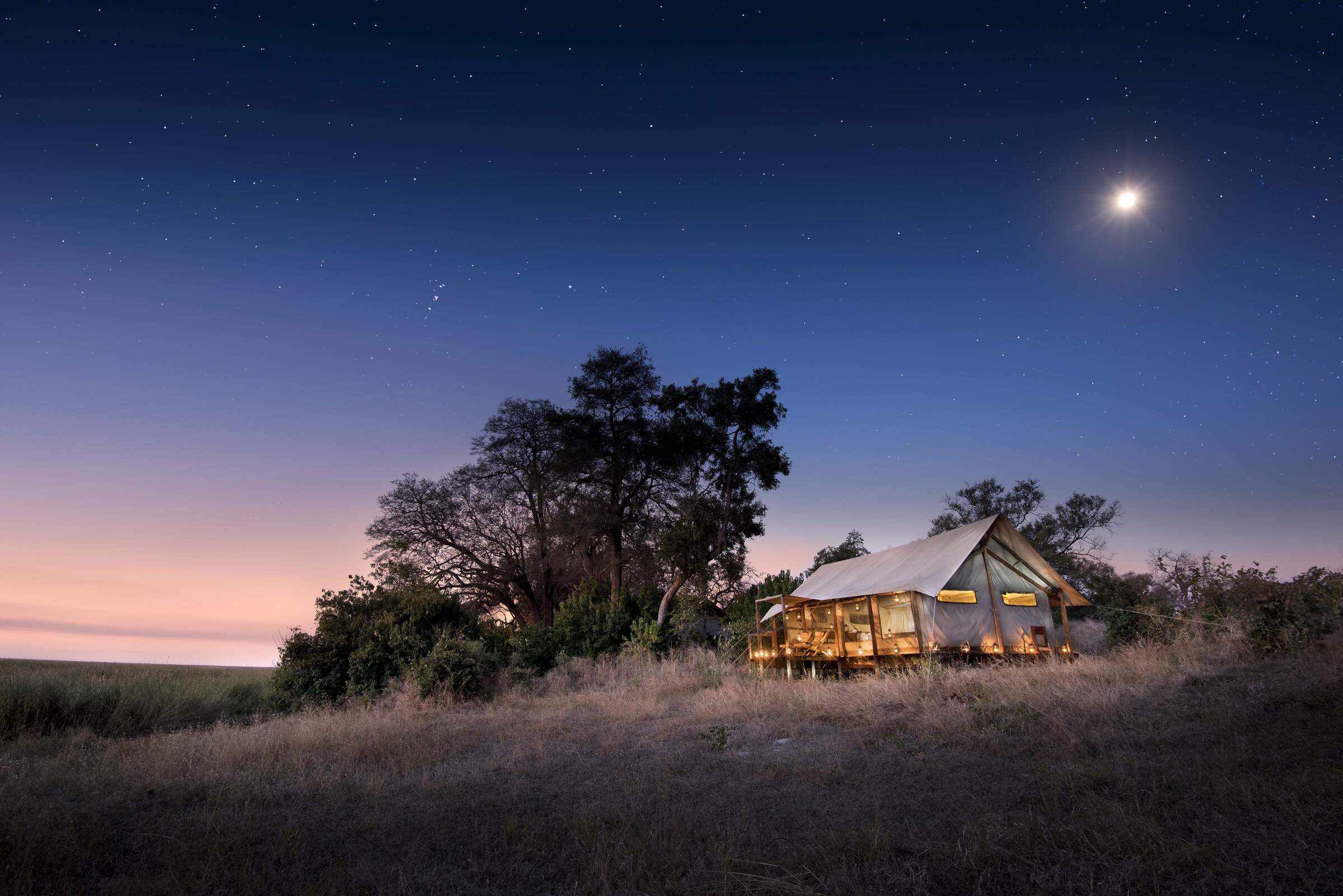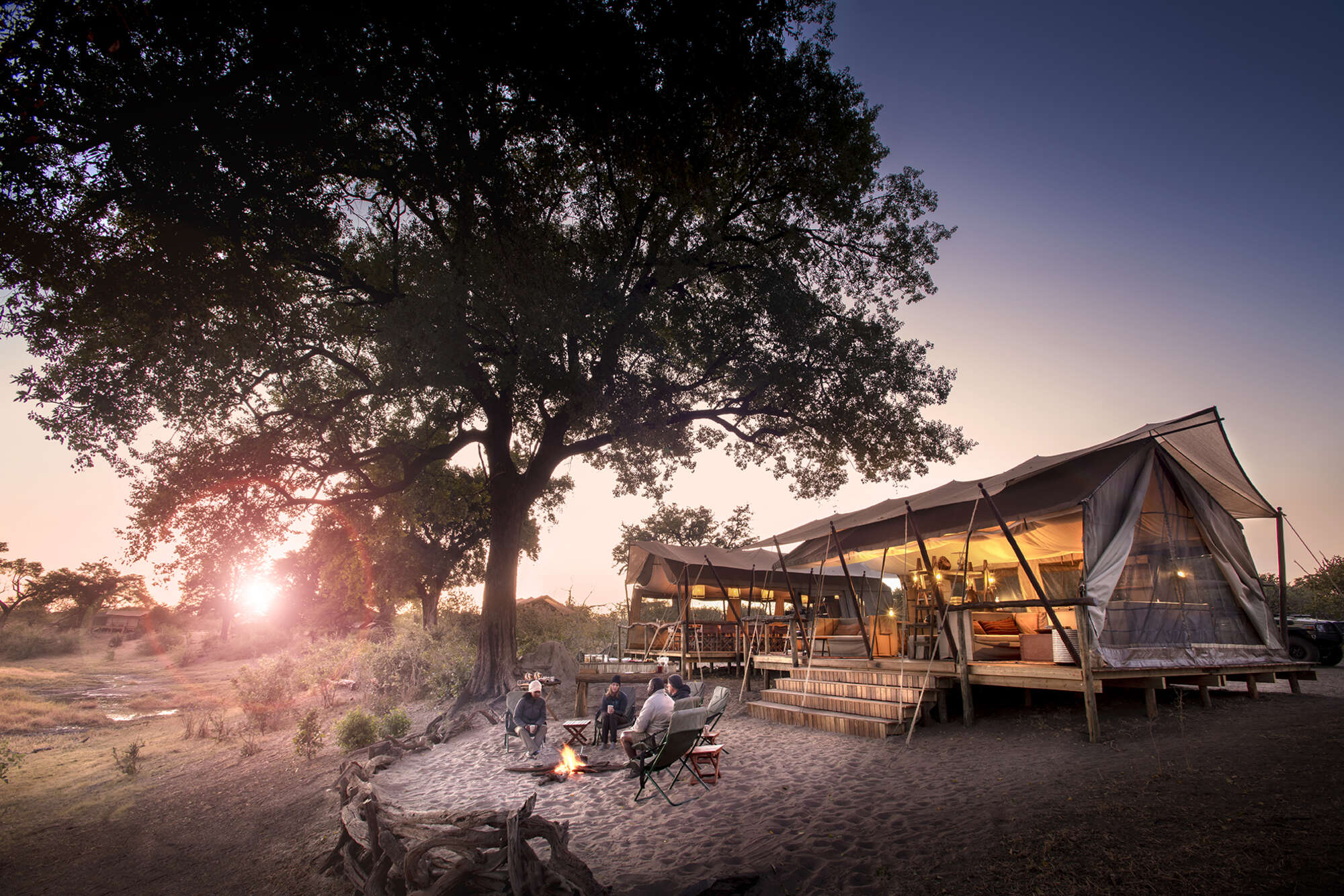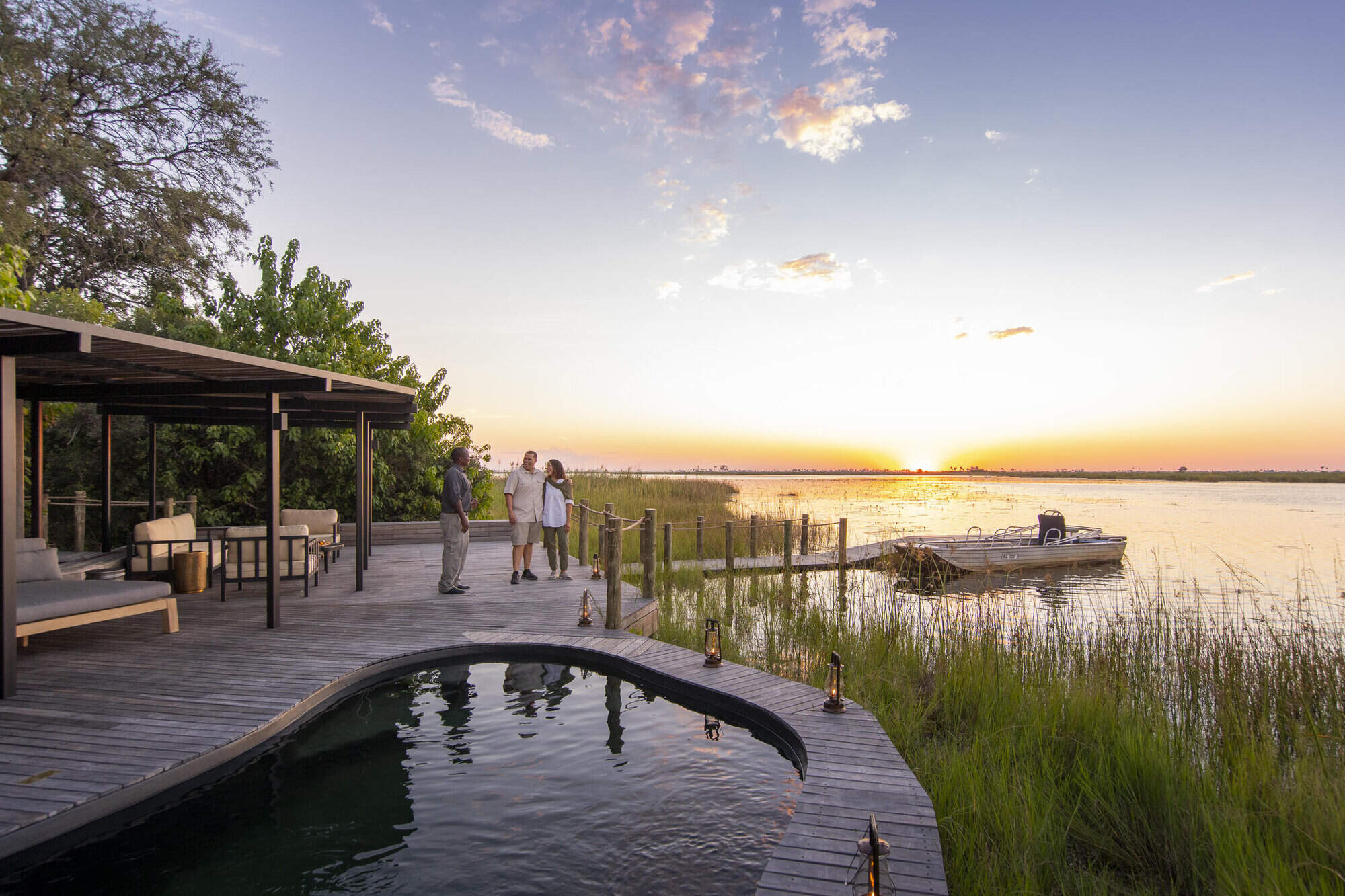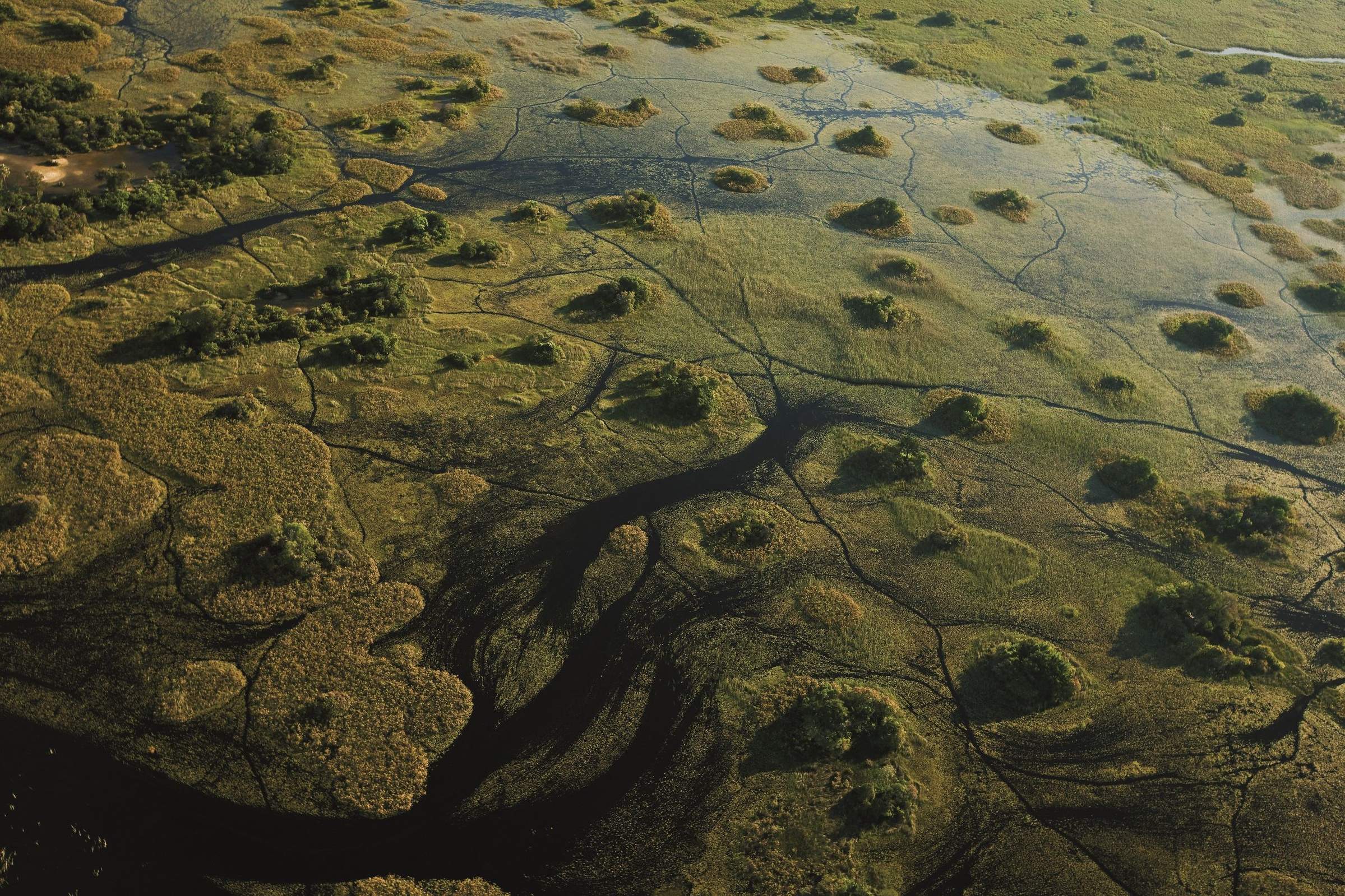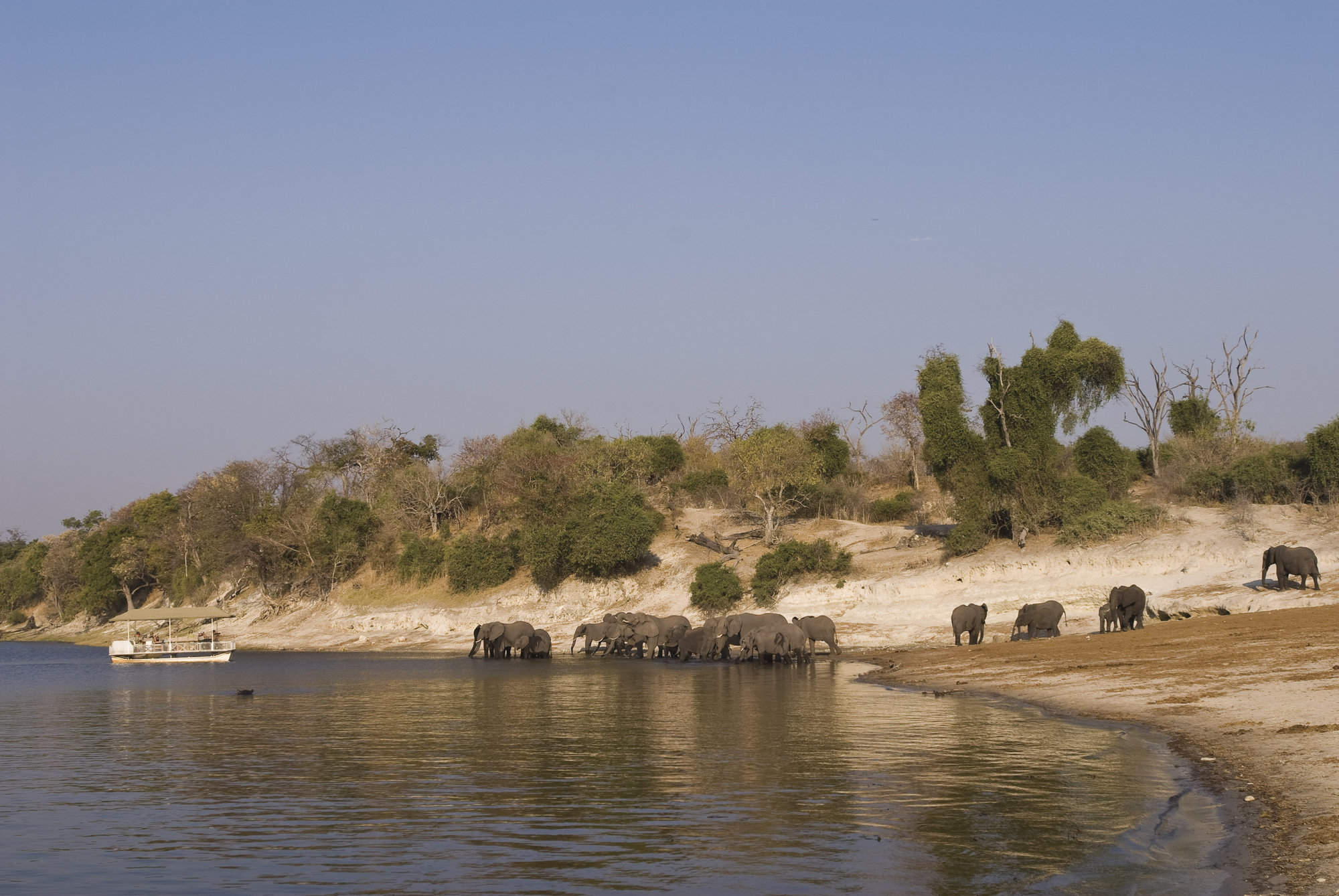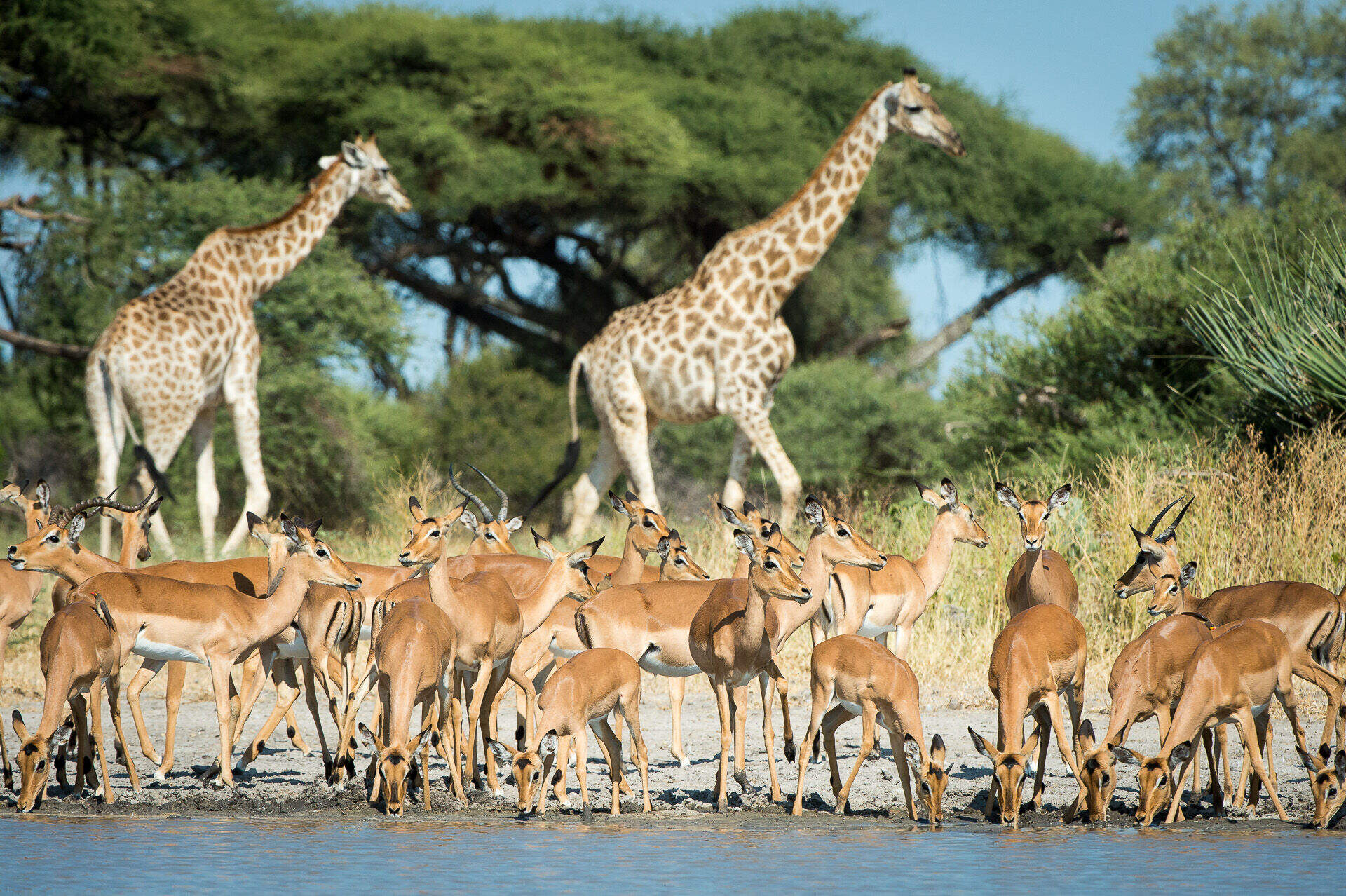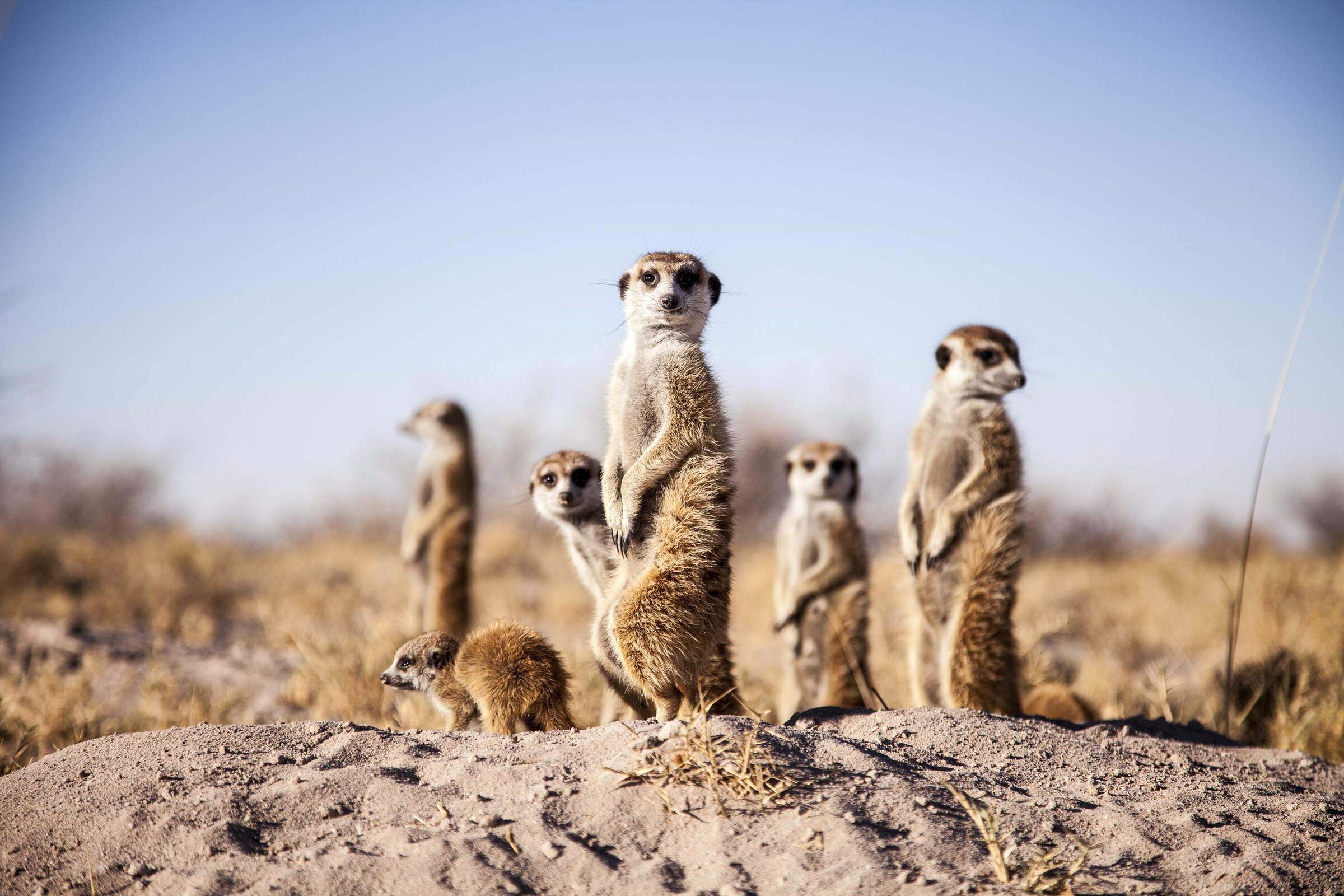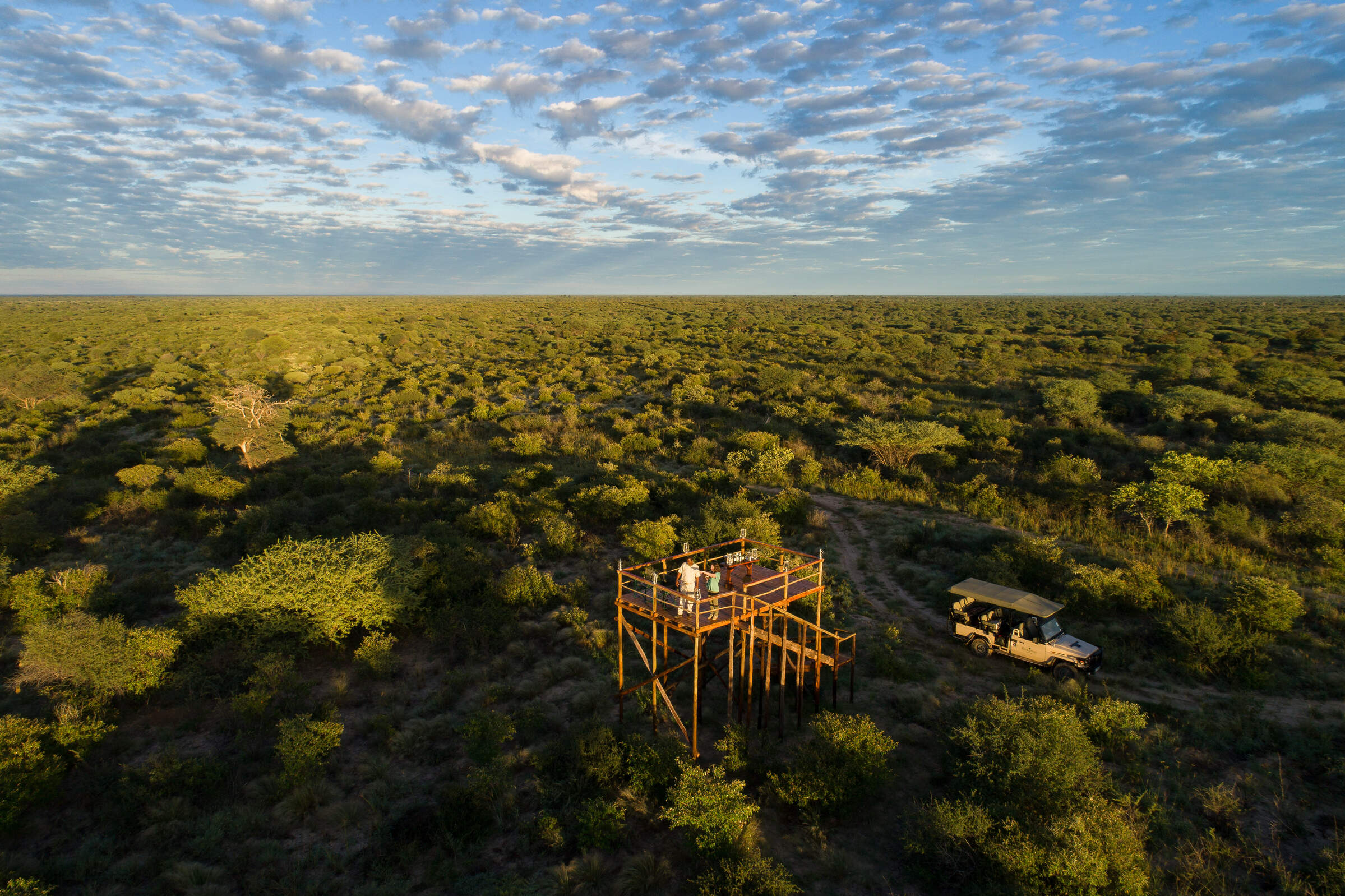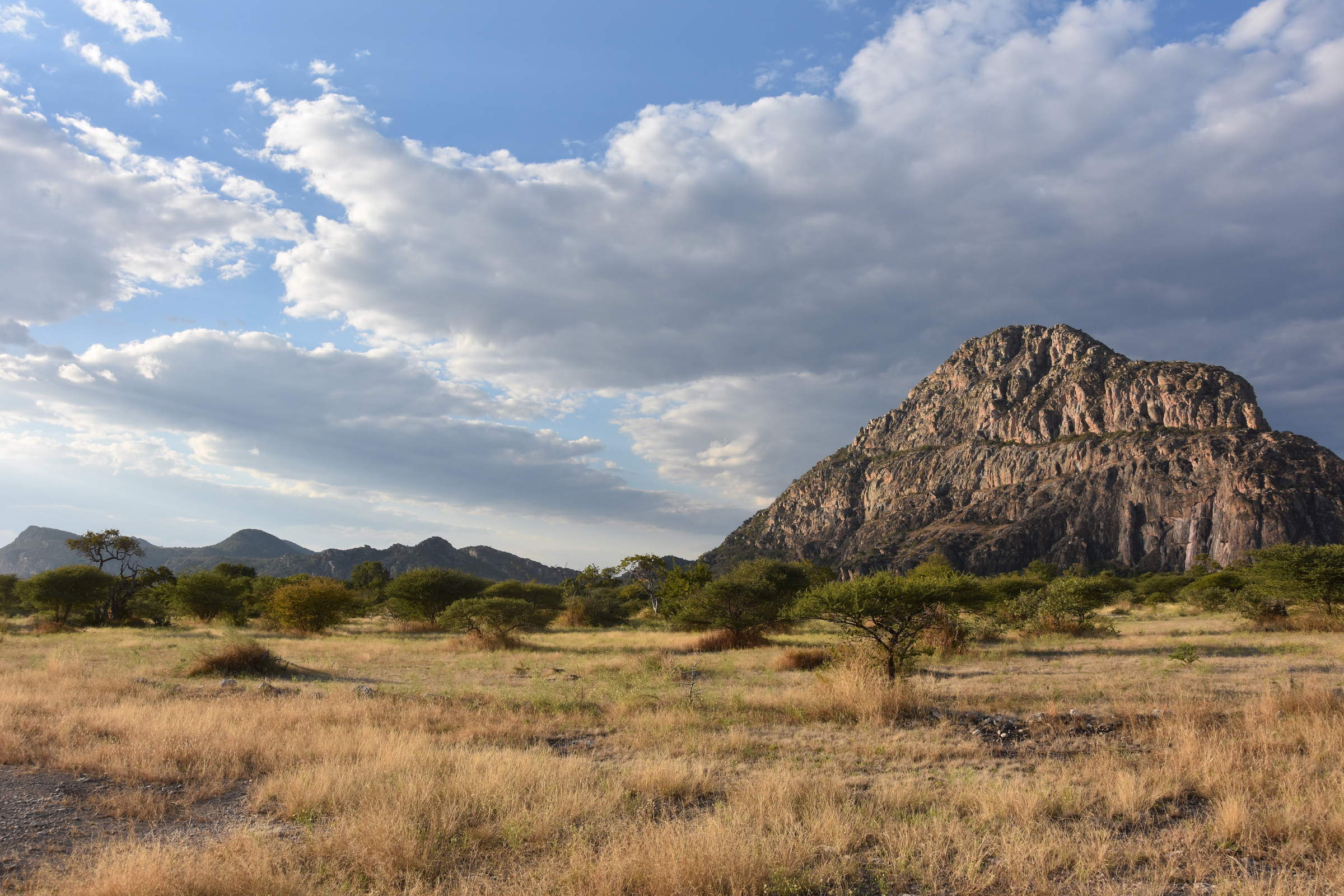Kings Pool: Our full report
Set within Botswana’s private Linyanti Reserve, King's Pool Camp overlooks a picturesque oxbow lagoon.
The environment, along the Linyanti River, is similar to that of Botswana’s Chobe Riverfront area – seasonal floodplains near the river, an adjacent band of riverine forest, and then dense (mostly mopane) forests stretching away south. Following a significant makeover in 2019, King’s Pool has retained its original high standards, with well-trained staff and considerable attention to detail.King’s Pool is one of four permanent camps within the 1,250km² reserve (the others being Duma Tau, Little Duma Tau and Savuti Camp).
The camp has eight tented suites which are built on wooden decks along the edge of the water, three to one side of the main area, five to the other. Although the walls are largely of canvas, the overall feel of the suites is surprisingly substantial.
Each suite has a large outside area with sunloungers and a sala, as well as an open-air shower. Shaded by magnificent jackalberry and leadwood trees, this is a great place for a siesta.
Ornate wooden doors open into spacious rooms with high thatched roofs. Four-poster-style beds are the focus of the bedroom area, with views out over the lagoon. Note that some beds can be made up as twins, but due to the four-poster design they cannot be pulled apart.
Each suite is also furnished with a couple of comfortable armchairs and matching foot stools, as well as a writing desk with a charging station, a dressing table and a large wardrobe. We thought that the “mini gym” provided in each wardrobe was a great idea – there is plenty of room on the deck or inside for those wishing to use the weights or yoga mat supplied.
In addition, there is a minibar in each suite, which the staff will gladly stock with your preferred drinks. There are also tea- and coffee-making facilities and a selection of sweet and savoury snacks.
To one side of the suite, the bathroom leads out onto the deck, with a flushing toilet in a separate room to the other side. Tiled walls make the bathroom feel more suited to a modern hotel than a safari camp, and although there is a curtain across the entrance, privacy is limited. That said, the amenities are very good: twin handbasins, double indoor showers with large “rain-shower” heads, and an outdoor shower too. Africology toiletries are provided, along with dressing gowns and slippers and even a hairdryer.
With two en-suite interleading rooms, the family suite also boasts a small private plunge pool.
Raised wooden walkways connect the suites to the main building: a warm, thatched structure that looks out across the water – and the reasonably frequent spectacle of elephants crossing the Linyanti River – that tends to draw visitors straight through to the large viewing deck. On our most recent visit, in September 2024, at least a dozen hippos could be seen basking on the island in the lagoon, and we were woken during the night to a porcupine snuffling around outside our room.
While there is a more formal covered lounge area, eclectically adorned with leather cushions and an array of traditional artwork, the two sunken, semi-circular seating areas overlooking the lagoon are understandably popular and well-utilised. This is an especially pleasant area in the evening when a central firepit provides a lovely atmosphere and – sometimes – much-needed warmth. There is a classy covered dining area too, but if the weather is fine, à la carte meals are usually served al fresco. A well-stocked curio shop and an infinity plunge pool complete the picture.
Activities at King's Pool include both day and night 4WD game drives and, when water levels permit (around April to August), boat trips on the double-decker Queen Silvia through the nearby waterways. On our last visit, in September, the water level in the main river channel was not high enough for this excursion.
Wildlife sightings in the Linyanti area are usually at their best when it's dry, from around June through to October. At their peak, the herds of elephants and buffalos can number hundreds or even thousands. In addition to some lovely sightings of elephant enjoying the riverfront environment during our stay, we were surprised to have our sunset drinks interrupted by the loud alarm call of a kudu. Our guide enthusiastically took us in search of the reason for the kudu’s concern, to be rewarded with the sight of the dominant male leopard lying on a termite mound.
About ten minutes' drive from camp is a sunken hide where you can spend time observing the animals that come down to drink. It’s a popular spot during the afternoon siesta period, and is usually most interesting during the dry season, from late July onwards.
There is also a bird hide at the camp itself. The birding in the area is really varied, with the Linyanti Reserve designated an important bird area (or IBA: a globally important habitat for the conservation of bird populations). In addition to many Okavango specials, such as the slaty egret and wattled crane, you may spot a good number of dry area species, as well as several raptors. On a previous visit, we were fortunate to see a beautiful colony of carmine bee-eaters, their crimson wings catching the sunlight with each flight. These birds are summer migrants to the area, typically arriving in September and departing in late November.
Thanks to King’s Pool’s focus on luxury the staff have all been trained to a very high standard which continues to be reflected in the service that we experienced.
Our view
King's Pool remains luxurious, with faultless service and very good food. If you want a high-quality safari camp where you can experience the riverine environment that's typical of the Chobe and Linyanti riverfronts, it's certainly a good option.
When it's dry, the game viewing can be good, but we would be hesitant to explore this area in the green or shoulder season due to the dense mopane forests south of the camp.
Geographics
- Location
- Kwando-Linyanti area, Botswana
- Ideal length of stay
- Three nights is wise here – even if travellers pressed for time may stay only for two. In many ways King’s Pool is best combined with Wilderness Safaris' other top-end camps in Botswana: Vumbura Plains, Jao Camp and Mombo.
- Directions
- Access is by light aircraft transfer to Chobe airstrip, and then a 4WD drive of approximately 45 minutes to King’s Pool.
- Accessible by
- Fly-and-Transfer
Food & drink
- Usual board basis
- Full Board & Activities
- Food quality
- King's Pool is generally more adaptable to the needs of individual travellers than most traditional camps, including the option to choose individual tables, and reasonably flexible mealtimes.
On our last visit, in September 2024, as on previous occasions, the standard of food was very good, with an extensive variety of dishes that were elegantly presented.
A light breakfast is laid out before your morning activity, with a selection of cereals, fruit, yoghurt, muffins, croissants, smoked salmon, cheeses, and even a cooked option if you wish.
Brunch is usually available from around 11.00am, although some guests prefer to eat a little later. Most recently, we enjoyed breakfast out in the bush, but on a previous visit we sat down to a fresh beetroot soup, followed by a very succulent beef fillet with roasted tomatoes and potato wedges, polished off by sorbet or ice cream for dessert.
Afternoon tea, served just before heading out on the afternoon activity, is usually a treat! In addition to freshly baked cakes and savoury snacks such as spicy fish tacos and chicken risotto balls, there is often the option of a freshly made smoothie. We also enjoyed an afternoon pick-me-up from the espresso pod machine.
More often than not, dinner at King's Pool is a plated service with three options per course. We tucked into a starter of smoked trout paté, followed by tender venison fillet with a rosemary and red-wine jus, served
with roast potatoes and baby carrots. Dessert was a rich sticky ginger pudding. - Dining style
- Individual Tables
- Dining locations
- Indoor and Outdoor Dining
- Further dining info, including room service
- There is no room service, but the suites do have minibar fridges, which the camp will gladly stock with requested drinks.
- Drinks included
- Bottled water, soft drinks, local beers and spirits and a selection of (usually) South African red and white wines are included. Champagne and imported wines and spirits will cost extra. The camp has a better-than-average stocked bar, but can order in special requests if advance notice is given.
Guests are usually given a water bottle on arrival, which they are encouraged to top up from the filtered supply in the camp's main area. Each room is also provided with glasses and a flask of filtered drinking water. We don't recommend that travellers drink from the tap.
Special interests
- Family holidays
- King's Pool has a family suite consisting of two en-suite interleading rooms and a private plunge pool. It would best suit families on safari in Botswana with children aged over 12; those with younger children have to book a private vehicle.
- See ideas for Family holidays in Botswana
- Luxury
- Ornate wooden doors, vast rooms, four-poster beds, private decks and an open-air shower are only a few of Kings Pool’s luxurious fittings. Add hard-to-fault service, excellent guiding and very good food, thus the makings of a luxury safari.
- See ideas for Luxury in Botswana
Children
- Attitude towards children
- Children over the age of 12 years are welcome at King's Pool. The camp may accept children between the ages of 6 and 12 years old, but private activities must be booked and this will be at an extra cost. Children younger than six may be accepted by special arrangement, but only if the entire camp is reserved for exclusive use.
- Property’s age restrictions
- Minimum age 12 (but see notes above). Children are allowed on boat trips from the age of six years, but sleep-outs and walking only from the age of 13 years.
- Special activities & services
- There are no special activities or services.
- Equipment
- The family suite at King’s Pool has two interleading en-suite rooms, and a private plunge pool. It would work well for a family of two adults and two children.
- Generally recommended for children
- Although there is an element of flexibility at King’s Pool, we don't consider that the style of the camp would make families with young children feel particularly welcome. Thus we'd recommend it only for families with more mature children over the age of 12 years.
- Notes
- King's Pool is unfenced, and dangerous animals, including leopard and hippos, are known to move regularly through camp. The walkways and suites are all raised off the ground. The pools are unfenced and the main pool is in close proximity to the river. Children must be under the constant supervision of their parents or guardians.
Our travellers’ wildlife sightings from Kings Pool
Since mid-2018, many of our travellers who stayed at Kings Pool have kindly recorded their wildlife sightings and shared them with us. The results are below. Click an animal to see more, and here to see more on our methodology.

100% success

100% success

100% success

100% success

100% success

100% success

50% success

50% success

0% success

0% success

0% success

0% success

0% success

0% success

0% success

0% success
Communications
- Power supply notes
- There's a generator for back up. Each suite has a number of plug sockets for charging batteries with a range of the more common adaptors.
- Communications
- There is WiFi in the rooms. Some cellphones with roaming may pick up reception here, as King's Pool is very near the Namibian border and cellphone network.
- TV & radio
- There is no TV or radio.
- Water supply
- Borehole
- Water supply notes
- The water is filtered through reverse osmosis.
All the suites have plumbed hot and cold running water and flush toilets
Sustainability

Protecting Africa’s endangered predators
Feared by many for its ruthless hunting style, but highly intelligent and with great paternal instincts, the African wild dog makes for a fascinating sight, admired by many researchers. However, the packs which would once roam the African wilderness at will are now under serious threat and have become the second most endangered African carnivore (the first being the Ethiopian wolf), suffering a substantial decline– both in numbers and in the areas that they historically occurred.
Today only a population of around 6,500 individuals has survived – inhabiting mostly isolated areas of southern Africa. Some factors which contributed to this significant drop include habitat loss and fragmentation, human persecution and conflict, diseases such as rabies, getting caught up in wire snares, loss of suitable prey and competition with other carnivores like lion and spotted hyaena.
Conservation and breeding programmes were implemented in an attempt to halt the decline in wild dog numbers. The team at King’s Pool works closely with local government bodies and the Wilderness Safaris Trust to ensure the conservation of wildlife in the area.
Recently, a wild dog den site was found close to the camp. Ever since, camp guides and the environmental team have been monitoring the newly-discovered site and making efforts to protect it. They first closed the site to protect the pups and avoided driving in a straight line to minimise the risk of other predators following them. Staff members are now using a winding and roundabout track leading to and from the area, adding a 20-metre border all around.
See more great sustainability projects in Botswana
Health & safety
- Malarial protection recommended
- Yes
- Medical care
- King's Pool Camp's managers are first-aid trained, and a first-aid kit is kept on site. There is a nurse in Maun who is on call and can be contacted by radio 24 hours a day. In the event of an emergency, guests can be flown out to the nearest doctor in Maun. Please note that it is only possible to fly out of camp during daylight hours as the bush airstrips do not have any lighting at night.
- Dangerous animals
- High Risk
- Security measures
- Air horns are provided in the suites to alert attention in case of emergency. There are raised walkways between the main area and the suites, but guests are escorted to and from their suites after dark.
- Fire safety
- Fire extinguishers are placed on the verandas of all suites and in the main area.
Activities
4WD Safari
Birdwatching
Boat trip
Fishing
Guided walking safari
Helicopter
Mokoro
Night drive
Private activities
Extras
- Disabled access
- On Request
- Laundry facilities
- A full laundry service is included and, wherever possible, items ill be returned to guests on the same day.
- Money
- All suites are equipped with small electronic safes. There are no money-exchange facilities.
- Accepted payment on location
- Mastercard and Visa cards are accepted; Diners and Amex are not. Cash payments may be made in South African rand, GB sterling, US dollars, euros and Botswana pula.
Other lodges in Kwando-Linyanti area
Alternative places to stay in this same area.
